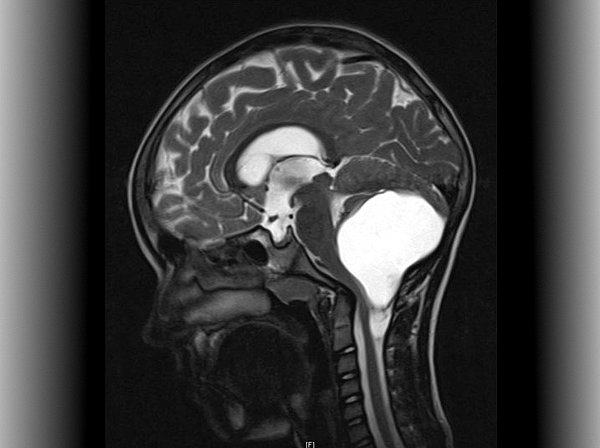Pediatric low-grade gliomas (pLGGs) are the most common brain tumors affecting children. Their rate of growth is hard to predict: Tumors often develop very slowly, but there are also fast-growing forms. In many cases, the patient’s quality of life is severely restricted.
A research group led by KiTZ researcher Till Milde, a pediatric oncologist at University Hospital Heidelberg who conducts research at the DKFZ, is looking for new substances that target specific molecular biological characteristics of pLGG. The researchers made use of genetic changes in the cancer cells that are known to cause overactivation of the MAPK signaling pathway to develop a new test system. The test can help with the search for new substances that are effective against this type of brain tumor.
Using the new procedure, which can test several thousand substances in parallel on pLGG cell cultures, the researchers were able to identify a group of promising candidate substances that inhibit the MAPK signaling pathway, thereby suppressing the growth of the cancer cells in the Petri dish. The researchers also discovered that certain substances used in combination have a synergistic effect on the tumor cells and are particularly effective at slowing down tumor growth.
The scientific results are currently being used by the KiTZ Clinical Trial Unit to prepare a phase I/II clinical trial under the leadership of KiTZ director Olaf Witt. The aim of the trial is to test the effectiveness of new drug combinations for the treatment of pLGGs.
The project is funded by The Brain Tumour Charity in the UK through the Everest Project.
Original publication:
Usta D. et al. A novel cell-based MAPK activity assay reveals synergistic suppression of MAPK activity by MAPK inhibitor combination in BRAF-driven pediatric low-grade glioma cells. In: Molecular Cancer Therapeutics (Online Publication 25th of May 2020). DOI: 10.1158/1535-7163.MCT-19-1021
Read more about the group “Translational brain tumor modeling”:
www.kitz-heidelberg.de/en/research/research-groups/cns-brain-tumors/group-trans-brain-tumor-modeling/




